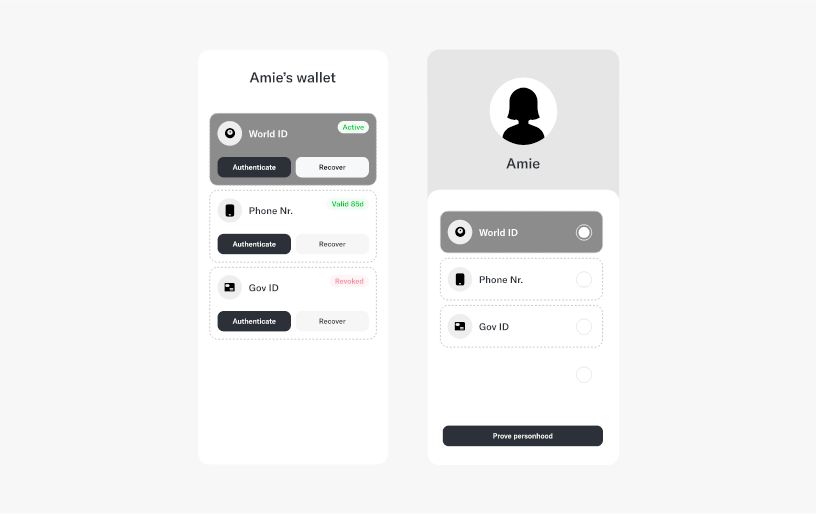Elon Musk rebrands Twitter as “X”
⚡ Today’s Highlights
📰 News: Elon Musk rebrands Twitter as “X”
💰 Funding: Quench.ai and Reworkd AI
📅 Events: The AI & GPT Application Innovation Challenge Hackathon is this week!
📰 Today's Top Stories
Twitter begins rebrand to ‘X,’ removing bird from company logo
(6 min read) (Source: The Washington Post)
TLDR: Elon Musk's dreams of owning an “X” branded company finally came true yesterday- Twitter is undergoing a significant rebrand, including replacing the iconic blue bird logo with the letter 'X'. This shift aligns with Musk's ambitions for Twitter to be part of an "everything app", including payment and communication services, with a central focus on the use of AI.
The newest change in a string of drastic changes has critics arguing that this rebranding decision disregards the customer experience, and could result in a substantial loss of shareholder value.
The changes and new policies have not been without consequences, with hate speech, misinformation, and extremism being amplified. Ad revenue has dropped about 50% under Musk's leadership, and user migration toward competitors, such as Meta's Threads, is increasing.
Further still, a potential legal struggle lies ahead as Microsoft reportedly owns the trademark to the letter 'X'. Elon Musk claims that there are more, real Twitter users and engagement now than before. At the very least, the changes at Twitter have certainly kept it in the limelight for the better part of a year.
OpenAI's Sam Altman launches Worldcoin crypto project
(4 min read) (Source: Reuters)
TLDR: Worldcoin, a cryptocurrency project founded by OpenAI CEO Sam Altman, launched on Monday with a focus on its unique offering called the "World ID." Altman believes that AI’s significant impact on the economy will lead to massive economic and technological shifts which will lead to spikes in identity fraud and theft.
The project aims to address the challenges posed by generative AI chatbots like ChatGPT, which can generate human-like language, making it difficult to distinguish between real individuals and AI bots online.
During its beta phase, Worldcoin attracted an impressive 2 million users. With its official launch, Worldcoin is rapidly expanding its "orbing" operations to 35 cities across 20 countries. WLD's price experienced significant growth during early trading on Monday, reaching a peak of $5.29 on Binance, the world's largest exchange.
However, not everyone is convinced. Ethereum co-founder Vitalik Buterin expressed concerns in a blog post about Worldcoin's user authentication system, called "Proof-of-Personhood" (PoP). Buterin highlighted potential issues related to privacy, accessibility, centralization, and security. He questioned the scanning of users' irises, which could inadvertently release more information than intended.
Microsoft’s Bing Chat comes to Chrome and Safari in tests for ‘select users’
(3 min read) (Source: TechCrunch)
TLDR: Microsoft's AI chatbot, Bing Chat, is expanding to non-Microsoft browsers like Chrome and Safari, making its ChatGPT-like experience available to a wider audience beyond Microsoft products.
The expansion is part of the company's testing on other browsers, and once completed, it will offer Bing Chat to more users.
Bing Chat utilizes OpenAI's GPT-4 model, but some users have reported limitations, such as fewer messages per conversation and character count restrictions compared to the original version in Microsoft Edge.
AI boom's big winners are all in four states
(4 min read) (Source: Axios)
TLDR: The current tech boom is buzzing with generative AI, but there's a twist according to a new Brookings Institution report- a staggering 60% of the new generative AI job opportunities are tightly concentrated in just 15 metro areas, with San Francisco taking the lead.
This concentration poses a potential challenge of "winner-takes-most" economic outcomes, calling for efforts to promote a more widely distributed AI sector to stop further perpetuation of the existing trend of AI jobs and R&D clustering in specific regions.
The U.S. high-tech industries have been increasingly concentrated in coastal cities, and while over 100 metro areas have potential to be AI centers, more than half of AI R&D investment occurs in just 14 metro areas.
Authors of the report suggest a "widely distributed" expansion of public sector AI research and access to computing to ensure that AI benefits reach beyond the superstar cities. Non-defense federal AI research spending currently stands at $1.7 billion in 2022. However, wider deployment and adoption of AI across the economy may help to spread economic benefits more broadly.
👀 More Reading:
The rise of AI forces us to reinterpret our human intelligence (Financial Times)
Deepfake videos may be convincing enough to create false memories (Popular Science)
Does Sam Altman Know What He’s Creating? (The Atlantic)
Big Tech looks to turn the corner on cloud as AI focus stays strong (Reuters)
💰 Funding Alerts
1. Quench.ai, an AI learning coach built for professionals, just raised a $5M Pre-Seed round. They leverage a conversational AI to personalize learning for busy professionals from the world's largest indexed educational video content library.
The round was led by VC’s and angels, including firstminute capital, Tuesday VC, BY Venture Partners, and over fifty founders.
Brent Hoberman (Co-Founder of firstminute capital) said, “By leveraging AI’s power and scalability, Quench.ai offers targeted content at people’s fingertips, transforming how we learn. With such an experienced team, and impressive early product-market fit, Quench.ai is poised to address the evolving talent development and upskilling needs of companies today.”
The funds will be used to expand the team, support product and tech development, and enhance customer sales and support, as Quench.ai revolutionizes personalized learning with conversational AI, transforming the $1 trillion learning and development industry.
2. Reworkd AI, the team behind AgentGPT just raised $1.25M in pre-seed funding, for an open-source platform they’ve developed that connects businesses to AI Agent automation.
The round was led by Panache Ventures with participation from Y Combinator.
AgentGPT gained significant traction earlier this year, boasting 150K monthly active users and 25K stars on GitHub.
Their new platform features a structured no-code workflow system that solves problems like hallucination, unproductive loops, and probability of failure for AI Agents.
With the platform, businesses can formalize their core processes and leverage AI Agents to handle complex tasks, saving time and resources
🌎 Fresh Content
Last week we covered the open-source release of Llama 2 by Meta.
This represented an important moment in the development of LLMs by major tech companies. Both Google and OpenAI, despite what the name suggests, have opted to not open-source their models, which could be detrimental.
In the AI race, many argue that open-source models will have a significant competitive advantage in the long run, with their ability to iterate development at a much faster speed and, thus far, address the problems of closed LLMs created by the tech giants. Not to mention, companies will prefer open-source models from a cost perspective as they won’t have to pay API fees for models they are able to download and custom tune.
Critics on the other side of the debate argue that open-sourcing these models could be dangerous for the public at large, as it puts the power of these tools directly into the hands of potential bad actors.
The following videos by AI Explained and AI Advantage are a great breakdown of Llama 2, and the unusual but perhaps genius move by Meta to open source their flagship model. Learn the difference between LlaMa 2 and the other major models, and what the downstream effects may be. You’ll also get some interesting insight into how models like these are built and trained.








